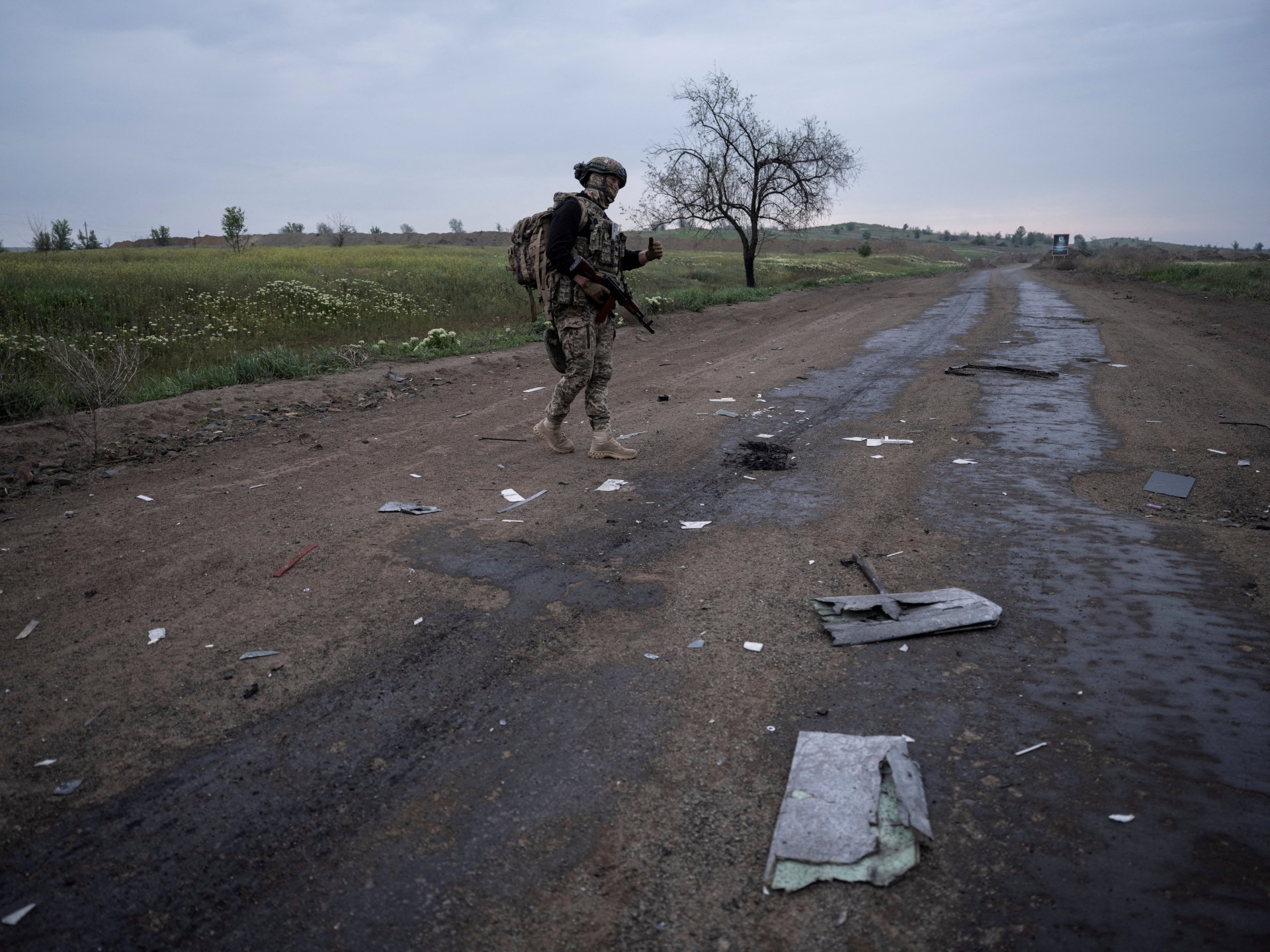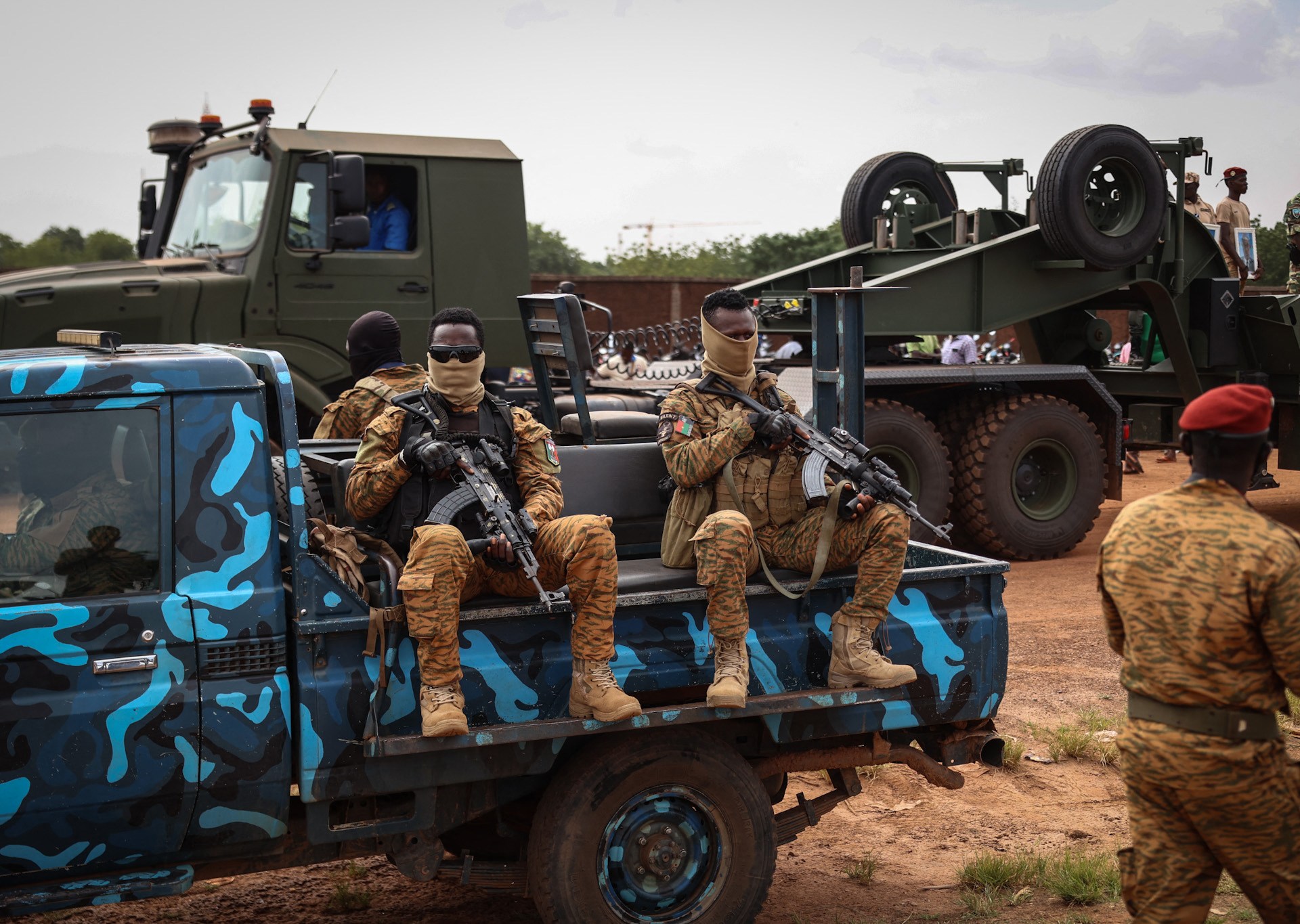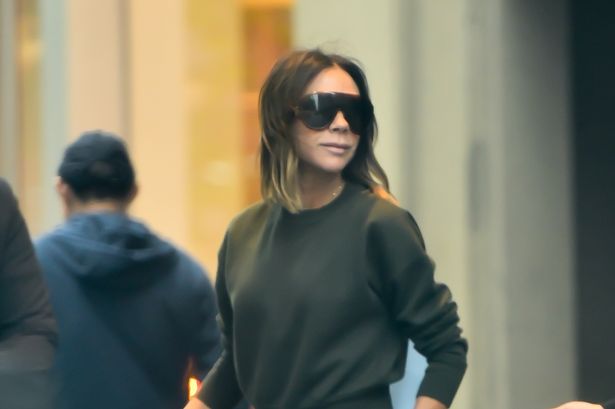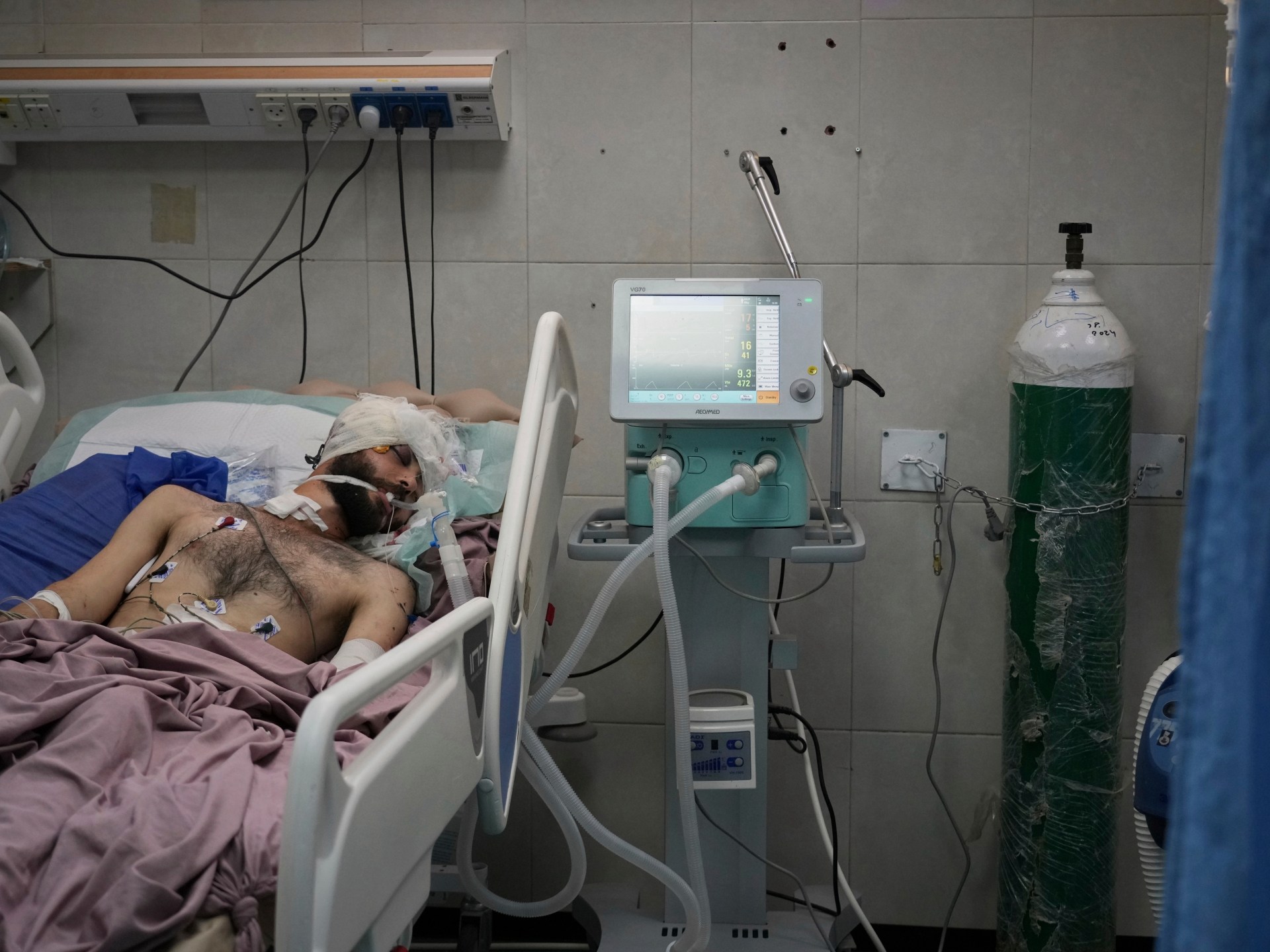Ukraine has said Russia fired more than 100 drones overnight, despite attempts from Kyiv’s allies to get Moscow to begin a 30-day ceasefire.
Ukrainian air defences destroyed 55 of the 108 drones that Russia launched since 11pm (20:00 GMT) on Sunday, Ukraine’s air force said in a statement on Monday, the day to begin the ceasefire proposed by Kyiv and its European allies to Russia.
The attacks also included 30 simulator drones that were lost along the way without hitting anything. Drones were shot down in the east, north, south and central parts of Ukraine, the air force said.
One person was wounded and residential buildings were damaged in the southern Odesa region, the military administration said. The attacks also damaged railway infrastructure and wounded a train driver in the eastern Donetsk region.
Ukrainian national railway operator Ukrzaliznytsia said “ceasefire proposals are being ignored, and the enemy continues attacks on railway infrastructure”.
Ceasefire calls, direct talks proposal
On a visit to Kyiv on Saturday, the leaders of France, Germany, Poland, and the United Kingdom called on Russia to agree to an unconditional ceasefire from Monday to allow for peace talks – a proposal they said was backed by the United States.
Russian President Vladimir Putin on Sunday proposed direct negotiations with Ukraine in Istanbul on May 15, without specifically addressing the European call but criticising “ultimatums” and “anti-Russian rhetoric”.
“We do not exclude that during these talks we will be able to agree on some new ceasefire,” Putin added.
Insisting that a ceasefire should take effect first, Ukrainian President Volodymyr Zelenskyy later said he would be prepared to meet Putin in Turkiye – but did not say whether he would still attend if Russia refused the truce proposal.
It came after US President Donald Trump said in a social media post Ukraine should agree to Putin’s proposal for direct talks “immediately”.
European leaders, however, reacted with scepticism to Putin’s proposal, with French President Emmanuel Macron warning that he was merely trying “to buy time”.
“An unconditional ceasefire is not preceded by negotiations, by definition,” Macron told reporters as he stepped off a train in the Polish city of Przemysl on his return from Ukraine.
Meanwhile, European ministers were set to meet in the United Kingdom on Monday for “critical” talks on “repelling Russian aggression”, in what will be the sixth gathering of the Weimar+ group.
British Foreign Secretary David Lammy was expected to announce further sanctions targeting those backing Russia’s invasion. “The challenge we face today is not only about the future of Ukraine – it is existential for Europe as a whole,” Lammy said before the talks.





